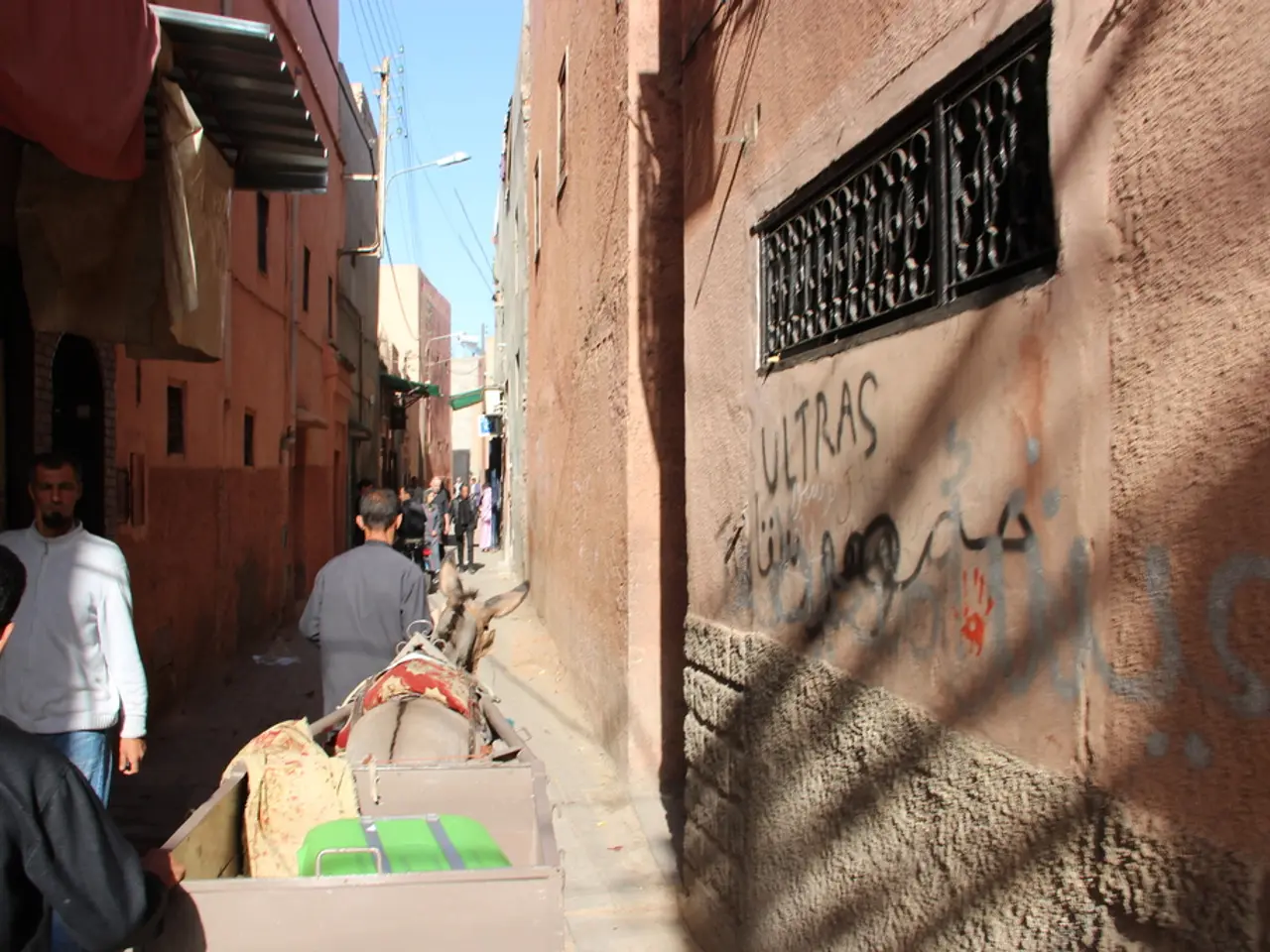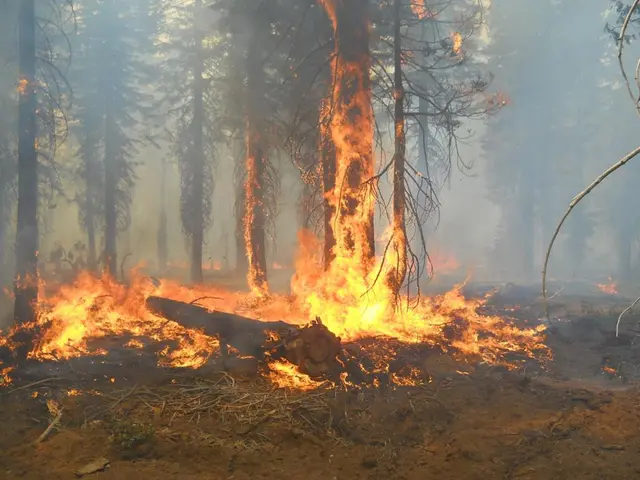Foreign Tamils in Sri Lanka seek foreign aid as mass graves are discovered
Mass Grave Excavations in Chemmani, Sri Lanka: A Testament to War Crimes
The small village of Chemmani in Sri Lanka has become the focus of international attention due to the discovery of a mass grave, suspected to contain the remains of hundreds of Tamil civilians killed during the army's 1996 recapture of Jaffna.
The mass grave was initially exposed in 1998, when Lance Corporal Somaratne Rajapaksa, convicted of raping and murdering the Tamil schoolgirl Krishanthi Kumaraswamy, testified that the grave held numerous bodies of Tamil victims. Excavations in 1999 unearthed 15 bodies, two of which were identified, while further excavations started in 2025 revealed over 100 skeletons, including children and infants, along with personal items like toys and clothing.
Findings from the excavations have connected the site directly to specific war crimes such as the rape and murder of Krishanthi Kumaraswamy and the execution of alleged LTTE suspects by military personnel. The mass grave is one of the few in Sri Lanka with paper trails, eyewitness testimony, named suspects, and forensic evidence linking military command to crimes.
The discovery of the mass grave has reopened wounds and grief for families of the "disappeared," offering evidence for justice after decades of silence and political interference. Survivors and relatives see the site as a painful testament to atrocities but also as a possibility for memory, documentation, and hope for accountability.
However, investigations have been hampered historically by political obstruction and failure to prosecute senior military officials, leaving many victims unidentified and sites unmarked. The international community, including the International Commission of Jurists, calls for transparent international investigations given the scale of unresolved enforced disappearances in Sri Lanka (estimated 60,000–100,000 cases).
Selvarani, the chairperson for the Association of Relatives of Enforced Disappearances (ARED) in Ampara District, has been advocating for the truth about the fate of her loved ones for 17 years. She faces intimidation from Sri Lanka's Criminal Investigation Department (CID) when attending protests. Ambika Satkunanathan, a human rights lawyer, shares Niranchan's distrust in the new government, led by leftist president Anura Kumara Dissanayake, who has stated he would not seek to prosecute those responsible for war crimes.
UN High Commissioner for Human Rights, Volker Türk, visited the Chemmani mass grave site and noted that Sri Lanka has struggled to move forward with domestic accountability mechanisms. Anushani Alagarajah, executive director of the Jaffna-based Adayaalam Centre for Policy Research, stated that Chemmani has a "very painful, very traumatic history" for the people of Jaffna. Despite hope for answers, Alagarajah warned that hope can be dangerous due to the potential for disappointment.
The mass grave excavation in Chemmani, Sri Lanka has uncovered 140 skeletons, including children, and has become the most high-profile instance of a mass grave investigation in the country to date. Artifacts such as slippers, a baby's milk bottle, and a child's school bag have been discovered at the site, serving as a stark reminder of the lives lost during the country's civil war.
- The international community, particularly the International Commission of Jurists, is calling for transparent international investigations into war crimes and enforced disappearances in Sri Lanka due to the discovery of the mass grave in Chemmani.
- Victims of war crimes and their families have faced political interference for decades, leaving many unidentified and sites unmarked.
- The mass grave in Chemmani is one of the few in Sri Lanka with paper trails, eyewitness testimony, named suspects, and forensic evidence linking military command to crimes.
- Human rights lawyer Ambika Satkunanathan has expressed distrust in the new Sri Lankan government's commitment to prosecuting those responsible for war crimes.
- The mass grave excavation in Chemmani has served as a painful testament to atrocities and a possibility for accountability and hope, but also has the potential to bring disappointment with the challenges of domestic accountability mechanisms.





